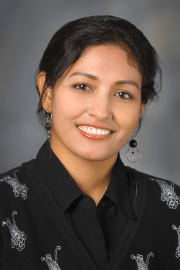about us
Mani Lab Alumni
Training the next generation of scientists

Joe Taube, Ph.D.
|
Associate Professor at Baylor University
|
| Graduate Program Director at Baylor University |
| Joseph_Taube@baylor.edu |
Dr. Taube earned his Ph.D. from the University of Texas – Health Science Center in Houston, working with Dr. Michelle Barton, studying fundamental interactions between transcription factors and chromatin in the context of embryonic stem cell specification and hepatocellular carcinoma.
He continued his training as a postdoctoral fellow in the laboratory of Dr. Sendurai Mani at the MD Anderson Cancer Center in Houston from 2009 to 2015. Here he studied the contribution of epithelial-mesenchymal transition to metastasis and the role of epigenetic regulators in this process.
Recruited in 2015 to Baylor University, Dr. Taube founded a lab dedicated to tackling drivers of mortality in breast cancer through the understanding of epithelial-mesenchymal plasticity and by applying novel molecules capable of targeting cancer stem cells.
He has received a prestigious fellowship from the Department of Defense (DOD), published extensively, and is now a tenured faculty member at Baylor University.

Brett Hollier, Ph.D.
|
Senior Research Fellow/Group leader at Queensland University of Technology |
| b.hollier@qut.edu.au |
Dr. Hollier is an early career researcher with an emerging national and international profile for his work in Insulin/Insulin-like growth factor (IGF) biology and mechanisms of cellular migration and cancer metastasis.
In recognition of his research, Dr. Hollier has been invited and presented his work at both national and international conferences as well as external research institutes. Dr. Hollier was recruited to Dr. Sendurai Mani’s lab at the University of Texas M.D Anderson Cancer Center (MDACC) (Houston, TX, USA) in September 2008 to further his research interests into the mechanisms of cancer metastasis and was awarded a prestigious Susan G Komen for the Cure® Foundation Postdoctoral Fellowship (USA) (2009) for his research investigating the role of the epithelial-to-mesenchymal transition (EMT) in cancer stem cells and metastasis.
Dr Hollier returned to Australia (Sep 2010) to initiate his own independent research laboratory investigating mechanisms of cancer progression at the Institute of Health and Biomedical Innovation, QUT. Dr Hollier was recently awarded a three-year Smart Futures Fellowship from the Queensland Government with a focus on improving targeted therapies to halt cancer progression. To date, Dr Hollier has been directly involved in attracting $650K in competitive grant research funding, including three Postdoctoral fellowships, one ARC Linkage, one Early Career Researcher, and two Pilot Study grants.
He has published 13 peer-reviewed articles, including nine original data journal articles, two invited journal review articles, and two book chapters, in high-impact, internationally recognized journals. These have included PNAS, Oncogene, Stem Cells, and two articles in Endocrinology with 205 citations to date. Reflecting Dr. Hollier’s research interests, these publications span the fields of growth factor biology and mechanisms regulating cancer metastasis. Dr. Hollier has been the lead author on a number of papers describing for the first time the signaling and transcriptional mechanisms via which novel complexes of growth factors and matrix proteins induce cancer progression.

Mika Pietilä, Ph.D.
|
Field medical advisor at The Janssen Pharmaceutical Companies of Johnson & Johnson
|
| mppietil@gmail.com |
Mika is an enthusiastic scientist with 10+ years of experience in stem cell and cancer research. He has excellent hands-on knowledge of the basic and translational academic research fields, and during recent years, he has gained experience and knowledge of the different functions of the pharmaceutical industry.
Mika is a recipient of a postdoctoral fellowship from the Emil Aaltonen Foundation in Finland.

Tapasree Roy Sarkar, Ph.D.
|
Assistant professor at Texas A&M University
|
| tsarkar@bio.tamu.edu |
Dr. Tapasree Roy Sarkar received her Ph.D. from the Department of Agricultural and Biological Engineering (ABE), Purdue University. Dr. Sarkar did her postdoctoral research at the NIH/NCI and M.D. Anderson Cancer Center with Dr. Sendurai Mani. She received a prestigious NIH T32 Bioinformatics fellowship at Texas A&M University. She is trained in an interdisciplinary field, bringing together the knowledge of Cancer Biology, Bioinformatics, Metabolomics, Molecular Biology, and Nanotechnology. Her research work has been published in PNAS, Oncogene, Molecular and Cellular Biology, Cancer Research, Oncotarget, Genome Biology, Neoplasia, Breast Cancer Research, and Bioinformatics. Dr. Sarkar serves as an associate editor for the Journal of Stem Cell Research & Therapeutics and serves on the editorial board of Frontiers in Oncology, Acta Scientific Cancer Biology and The Journal of Analytical Oncology.

Rama Soundararajan, Ph.D.
|
Associate Professor & Director: Educational Initiatives and Training at MD Anderson Cancer Center
|
| rsoundararajan@mdanderson.org |
Dr. Rama Soundararajan, Ph.D. received her Ph.D. from the Indian Institute of Science.

Maria Castaneda
|
Clinical Research Scientist at Loxo Oncology at Lilly
|
| mariagcastaneda2019@gmail.com |
Dr. Maria Castaneda received her Ph.D. at the University of Texas at Dallas under the supervision of Dr. Jiyong Lee aiming to synthesize a small molecule inhibitor of the Epithelial-Mesenchymal Transition.
She joined the Mani lab as a postdoctoral fellow and was awarded a T32 fellowship in Translational Genomics and Precision Medicine Approaches in Cancer.
She left the Mani lab to become a Clinical Research Scientist at Loxo Oncology at Lilly.

Abhijeet Deshmukh, Ph.D.
|
Medical Science Liaison – Oncology at Hologic, Inc.
|
| abi.p.desh@gmail.com |
Dr. Abhijeet Deshmukh received his Ph.D. in Oncology and Stem Cell Biology from Curtin University. Here, he studied the role of secreted frizzled-related protein 4 (sFRP4) in the Epigenetics, Metabolism, and Chemo-sensitization of Cancer Stem cells.
He joined the Mani lab at MD Anderson Cancer Center as a Research Fellow, where he worked on identifying EMT signaling cross-talk and gene regulatory networks by using single-cell RNA sequencing.
He left the Mani lab to become a Medical Science Liaison in Oncology at Hologic, Inc.

Esmeralda Ramirez-Peña, Ph.D., MPH
|
Cancer Prevention Fellow – National Cancer Institute
|
| esmeralda.ramirez.pena@gmail.com |
Dr. Esmeralda Ramirez-Peña received her Ph.D. in Dr. Mani’s lab at MD Anderson Cancer Center. In Dr. Mani’s lab, she researched the metabolic activity and gene expression in cancer cells that have activated the EMT program.
After receiving her Ph.D., she joined the NCI as a Cancer Prevention Fellow. Here, she leads multi-disciplinary projects of national interest to evaluate and improve tools for clinical trial design and cancer control surveillance.